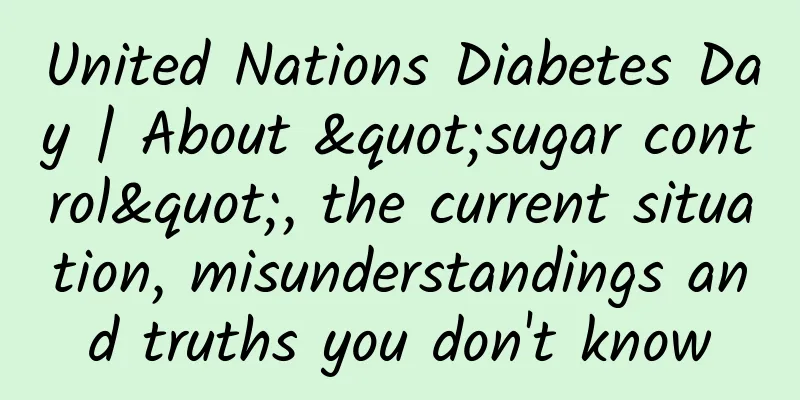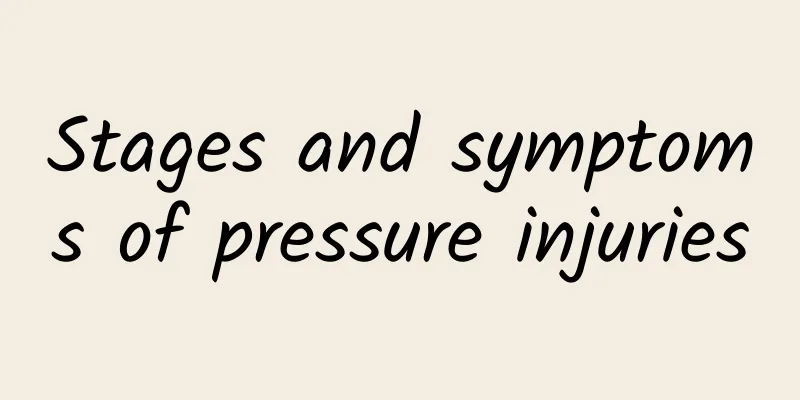United Nations Diabetes Day | About "sugar control", the current situation, misunderstandings and truths you don't know

|
Since the "Three Reductions and Three Healths" ("Three Reductions" refers to reducing salt, oil and sugar; "Three Healths" refers to healthy oral cavity, healthy weight and healthy bones) was first proposed by the National Action Office for the National Healthy Lifestyle Action in 2016, it has gradually been included in many health-related policy documents. In recent years, social media has often seen various negative news closely linking "sugar" with "obesity" and "ICU". As the public pays more attention to nutrition and health, behaviors such as "reducing sugar" and "controlling sugar" have become the first step for more people to move towards a healthy lifestyle. On this year’s 18th United Nations Diabetes Day, let us take a look at the current situation, misunderstandings and truth about “sugar control”. Not everyone needs to strictly control sugar intake In 2023, the "Survey Report on Sugar Awareness and Sugar Control Behavior of Chinese Consumers" (hereinafter referred to as the "Survey Report") [1] based on data from 3,172 online questionnaires across the country showed that 68% of consumers have the intention to control sugar, and young people and people with weight anxiety have a stronger desire to control sugar. However, the "Sugar Intake Level and Risk Assessment of Urban Residents in China" pointed out that the average daily intake of urban residents in my country is 9.1 grams of sugar per person, which is in line with the recommendation of "Dietary Guidelines for Chinese Residents (2022)" that the intake of sugar per person should be within 25 grams per day. In addition, the sugar intake of residents only accounts for 1.9% of the total dietary energy, with the highest being the 3-6 year old group, accounting for 3.4% of the total energy, which is also far lower than the World Health Organization's recommended value of 10%. Sugar, as a sweet substance, plays an important role in satisfying the needs of the tongue. Sugar only provides energy but not other nutrients. Excessive intake of sugar will affect the balance of energy and other nutrients, which is not good for health in the long run. Li Ning, director of the National Food Safety Risk Assessment Center, said that the current sugar intake of Chinese residents is actually not that much. For most people, "sugar control" is not as important as "salt control", "oil control" and controlling total energy intake. However, we cannot be blindly optimistic, because in the past 20 years, my country's annual sugar production has more than doubled, and the sugar energy supply ratio of the 13-17 and 3-6 age groups exceeds 10%, accounting for 4.1% and 4.8% respectively. This cannot be ignored due to my country's huge population base. In addition, overweight and obese people, people with diabetes and special groups with long-term high blood sugar should also pay attention to controlling their sugar intake. Nearly 80% of consumers have misunderstood the key points of "sugar control" Previous data showed that the market penetration rate of sugar-free beverages has reached nearly 80%. This survey report found that 78% of consumers believe that the sugar in food and beverages should be controlled. However, kitchen sugar is actually the largest source of sugar intake for urban residents in my country, and its contribution rate is about twice that of sugary beverages. Zhong Kai, director of the Kexin Food and Health Information Exchange Center, said that people generally focus on the food and beverages on supermarket shelves to "reduce salt, oil and sugar", but ignore the decisive significance of three meals a day. In fact, the main way to ingest salt, oil and sugar is through dining, including cooking at home, which is caused by the current dietary structure of Chinese people. We should start from our own kitchens and gradually adapt to and cultivate a light taste. 90% of consumers mistake sugar for sugar Reading the food ingredient list can help you understand the main components of the food. For example, sucrose, fructose, and high fructose corn syrup are typical sugary ingredients. Other more hidden sugars include honey, jam, concentrated fruit juice, etc. However, the survey report shows that less than 10% of consumers can accurately identify these sugary ingredients. For example, the accuracy of identifying sucrose is only about 80%, and the accuracy of identifying commonly used fructose syrup, honey, concentrated juice, and jam is less than 50%. Interestingly, many consumers also identify sweeteners (sugar substitutes) that do not provide energy or only provide less energy as sugary ingredients. Image source: "Survey Report on Chinese Consumers' Sugar Awareness and Sugar Control Behavior" Chen Junshi, an academician of the Chinese Academy of Engineering, believes that there is still a long way to go in educating consumers about nutrition and health, and reading the food nutrition information table will help the public understand the sugar content of food more clearly. But in the final analysis, consumers must learn to choose and match healthy meals on their own, rather than accusing the added sugar in a specific food or dish of being "unhealthy." Sugar is demonized. There is a deep misunderstanding about "artificial sweeteners" The Healthy China Action Plan (2019-2030) advocates that "people with high sugar intake in cities should reduce their consumption of sucrose-containing beverages and sweets, and choose natural sweeteners and sweeteners to replace sucrose-based beverages and foods". Although more than 60% of consumers choose sugar-free products for health reasons, 38.5% of consumers still have doubts about the safety of sweeteners. Academician Chen Junshi pointed out that sweeteners are the most intensively studied food additives in the world, and their application safety has been fully tested in practice. According to the Scientific Consensus on Food Sweeteners (2022)[2], my country, like other countries and regions, implements a strict pre-market approval system for food additives, including sweeteners. It is safe for food manufacturers to use sweeteners scientifically and reasonably in accordance with regulations. The Survey Report shows that consumers have different acceptance of different sweeteners, and their acceptance of low-intensity sweeteners such as sugar alcohols is significantly higher[3]. Among them, the acceptance of natural sugar substitutes such as xylitol even exceeds that of sucrose, which may be related to the long-term and continuous consumer education of related industries. However, consumers' acceptance of artificial sweeteners is significantly lower. For example, saccharin, which has been used for more than a hundred years, has an acceptance rate of only 7.04%. In fact, all kinds of sweeteners are evaluated for safety based on the same benchmarks, and authoritative institutions and management departments in various countries believe that the use of sweeteners, including natural and synthetic ones, in accordance with relevant regulations and standards is safe. Zhong Kai believes that consumers' misunderstanding of "synthetic" is deeply rooted, and in the future, while strengthening popular science, it may be necessary to continue to develop natural sweeteners such as monk fruit and stevia that are more acceptable to the public. Reasonable use of sweeteners, In fact, there are some health effects The survey report found that most consumers do not understand the effects of sweeteners, and even have obvious blind spots. For example, only 32.2% of consumers agree that "sweeteners basically do not provide energy", 34.6% of consumers agree that "sweeteners do not increase blood sugar", and 22.9% of consumers believe that "sweeteners stimulate appetite and cause obesity." Image source: "Survey Report on Chinese Consumers' Awareness of Sweeteners" In fact, sweeteners provide almost no energy or only a small amount of energy, which has a positive impact on consumers' active control of energy intake. Sweeteners also have little effect on blood sugar, so they have been used in dietary intervention for diabetic patients. The key to a healthy diet is "reasonable diet and balanced eating and exercise" In recent years, some studies have found that sweeteners are related to obesity, cardiovascular disease, etc., which has attracted public attention. Zhong Kai said that the interference factors of dietary energy intake and eating behavior are very complex, and the "correlation" found in these studies is still far from "causality". The "Scientific Three Reductions and Smart Sugar Use" Joint Tips [4] recommend that the public should change their sugar and sweet eating habits, such as replacing sweet snacks and drinks with fruits and vegetables, milk, plain nuts, drinking water and tea. Zhong Kai said that the key to a healthy diet is a reasonable diet and a balance between eating and moving, including actively controlling excessive pursuit of sweets, and not pinning hopes on sweeteners. Academician Chen Junshi pointed out that "food diversity and balanced eating and exercise" are the core of healthy diet, and controlling total energy intake is an important way to prevent and treat overweight, obesity and related chronic diseases. People with diabetes, people with long-term high blood sugar, people who are overweight or obese, and other people who have a need to control sugar and like sweetness can reasonably choose products related to replacing sugar with sweeteners on the premise of a reasonable diet. References: [1] Kexin Food and Health Information Exchange Center. Survey Report on Chinese Consumers’ Sugar Awareness and Sugar Control Behavior [EB/OL]. http://www.kexinzhongxin.com/html/kanwu/5913.html [2] China Food and Health Information Exchange Center, Institute of Nutrition and Health, Chinese Center for Disease Control and Prevention, etc. Scientific consensus on food sweeteners (2022) [J]. Chinese Journal of Preventive Medicine, 2023, 57(4): 457-460. DOI: 10.3760/cma.j.cn112150-20221117-01119. [3] Kexin Food and Health Information Exchange Center. Survey Report on Chinese Consumers’ Awareness of Sweeteners [EB/OL]. http://www.kexinzhongxin.com/html/kanwu/5041.html [4] Kexin Food and Health Information Exchange Center, Institute of Nutrition and Health, Chinese Center for Disease Control and Prevention, etc. "Three Scientific Weight Loss in the Kitchen" Joint Tips [EB/OL]. http://www.kexinzhongxin.com/uploadfile/2022/1114/20221114091126223.pdf Written by Chu Yibing (Deputy Director of the Science Communication Department of the China Science and Technology Information Exchange Center for Food and Health) Editors: Ji Jingjing, Duan David |
<<: What effects does long-term drinking of milk tea have on the body?
>>: Leg cramps during sleep are not just a matter of calcium deficiency
Recommend
How long can I be pregnant with a pregnancy test stick?
In life, many friends will use pregnancy test sti...
Cervical cancer vaccine validity period
With the popularization of cervical cancer vaccin...
What effects does IUD insertion have on the body?
We all know that condoms are the preferred method...
Can I have sex with a condom before having an IUD inserted?
The IUD can be said to be a very effective, safe ...
What should you pay attention to when getting pregnant again after miscarriage
I believe everyone is familiar with the symptoms ...
Ovulation is usually at midnight
It is very difficult for mothers during pregnancy...
Why does leucorrhea appear red after menstruation?
Many female friends find that there may be some p...
Pregnant boy reaction in the afternoon
During pregnancy, expectant mothers will have dif...
Can I walk more if my buttocks are around my neck for one week at 33 weeks?
When a woman becomes pregnant and goes to the hos...
The body is not clean and has some blood on it
Menstruation is a normal physiological phenomenon...
Can pregnant women use cooling oil and wind oil essence?
The main ingredients of Fengyoujing are menthol, ...
Causes and treatment of irregular menstruation
Irregular menstruation is a gynecological disease...
These 10 kinds of fruits are nutritious and healthy, slow blood sugar rise, and suitable for diabetics
Fruits can provide the human body with rich vitam...
What to do if you haven't had your period for 9 days
Menstruation can cause distress to women, and not...
What should you pay attention to when you first get pregnant?
For some couples who want children, pregnancy is ...









